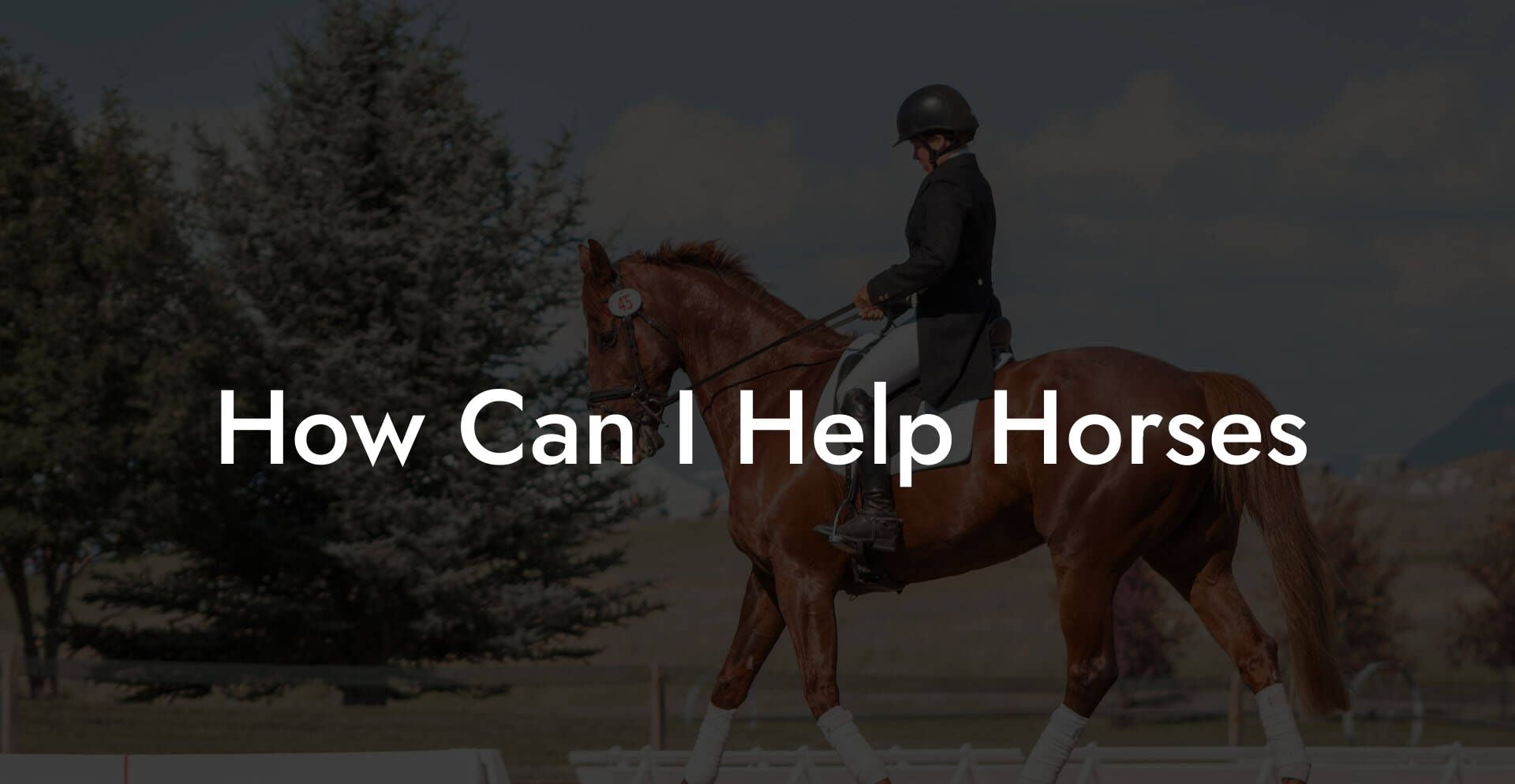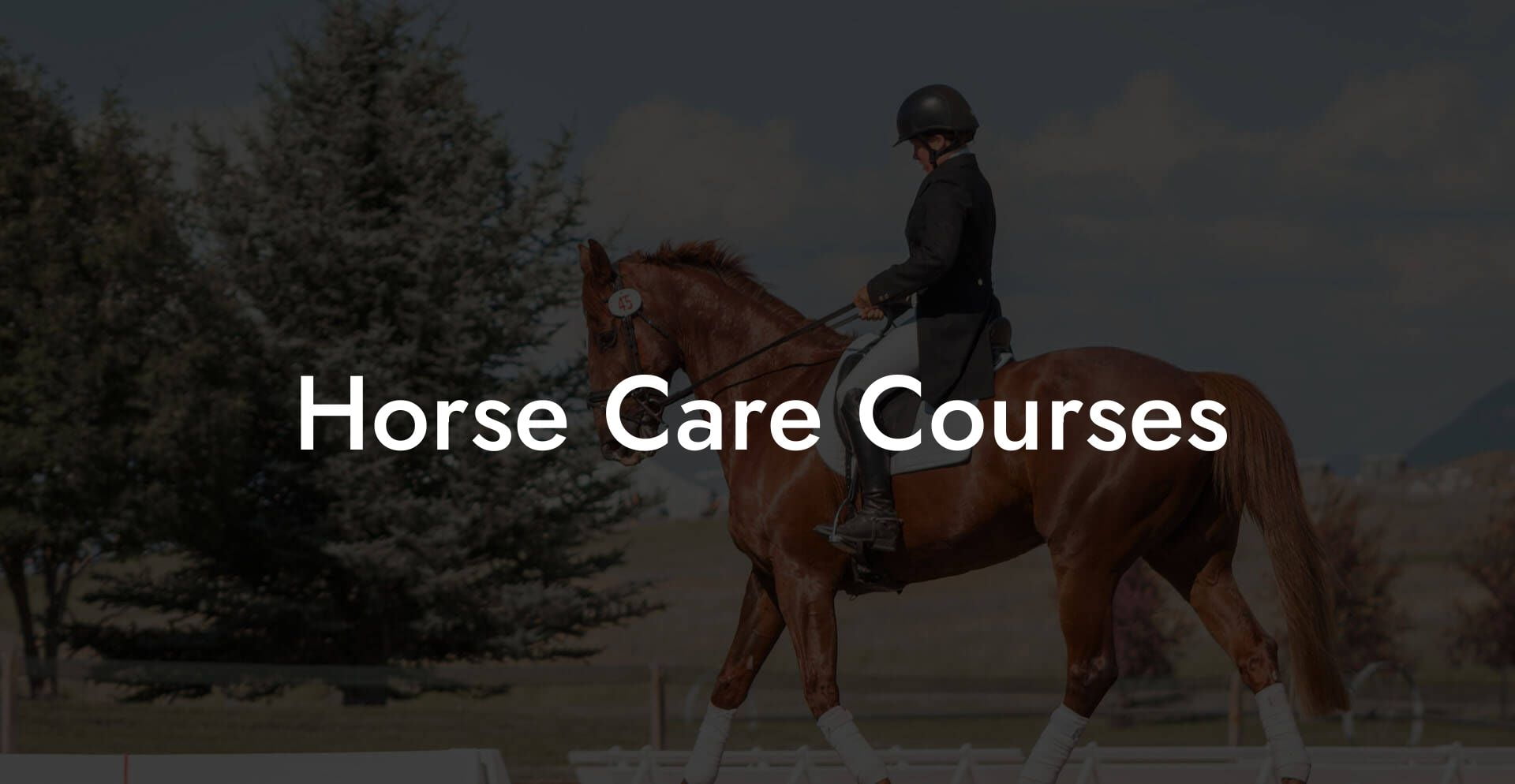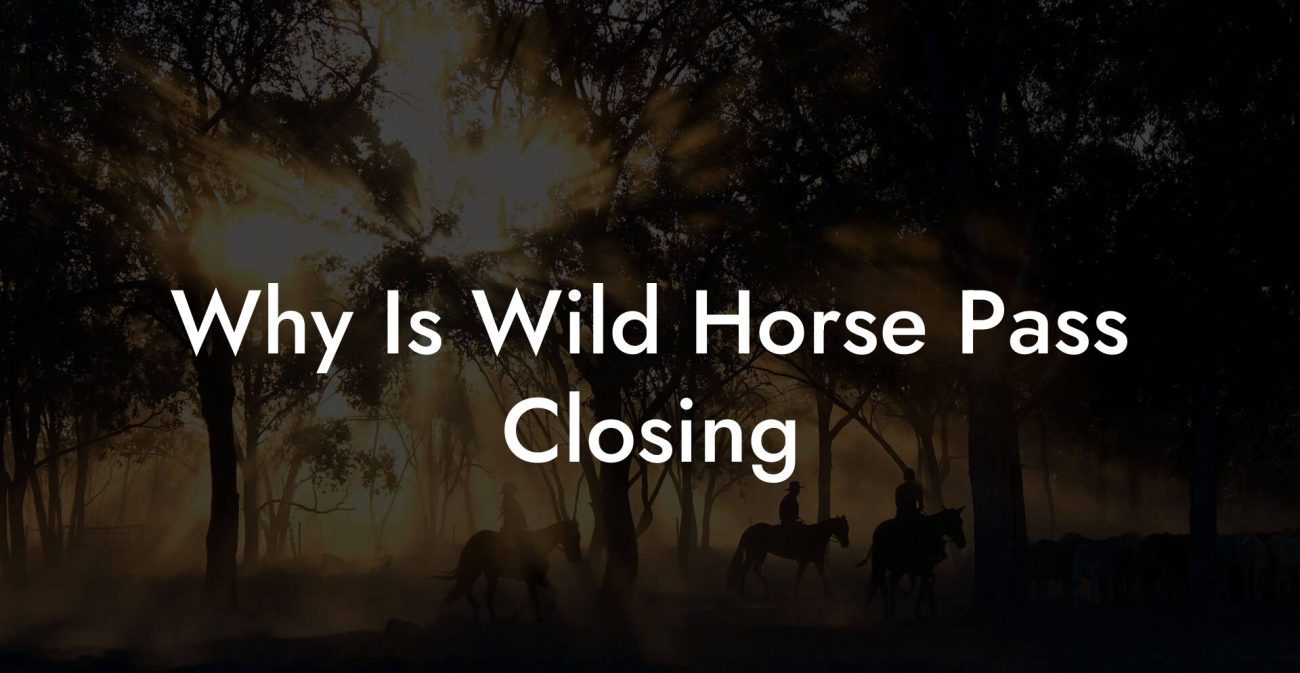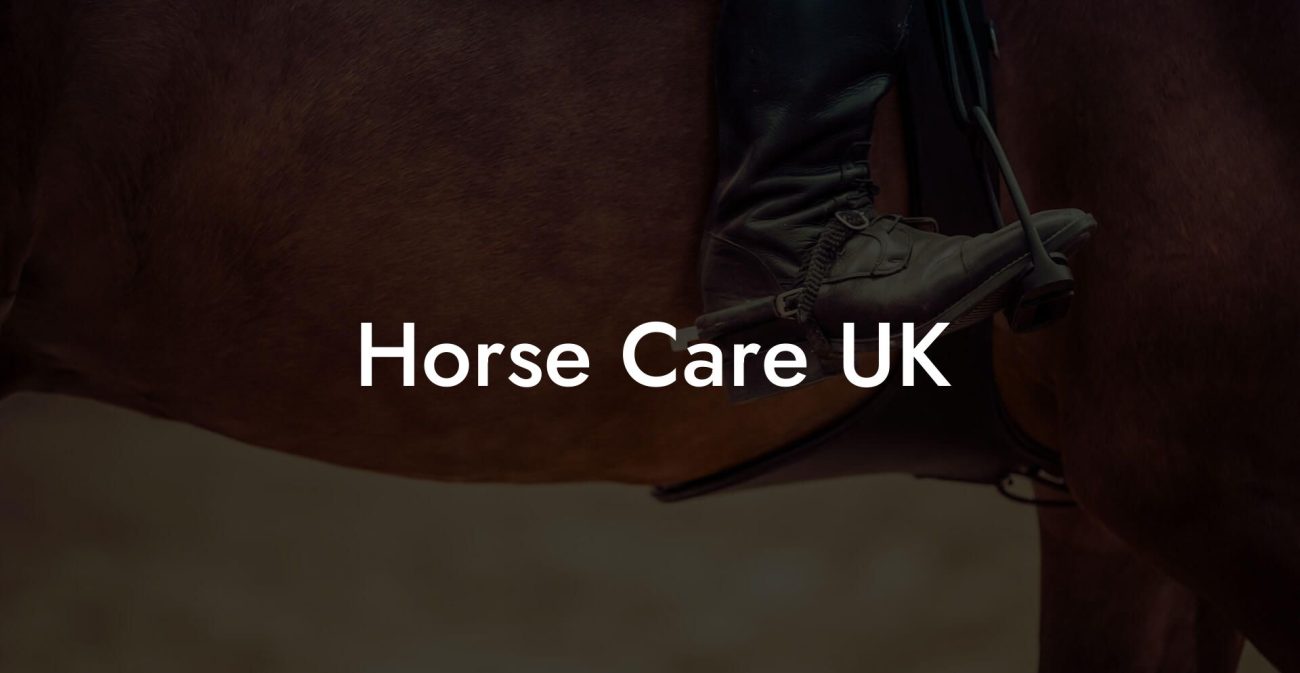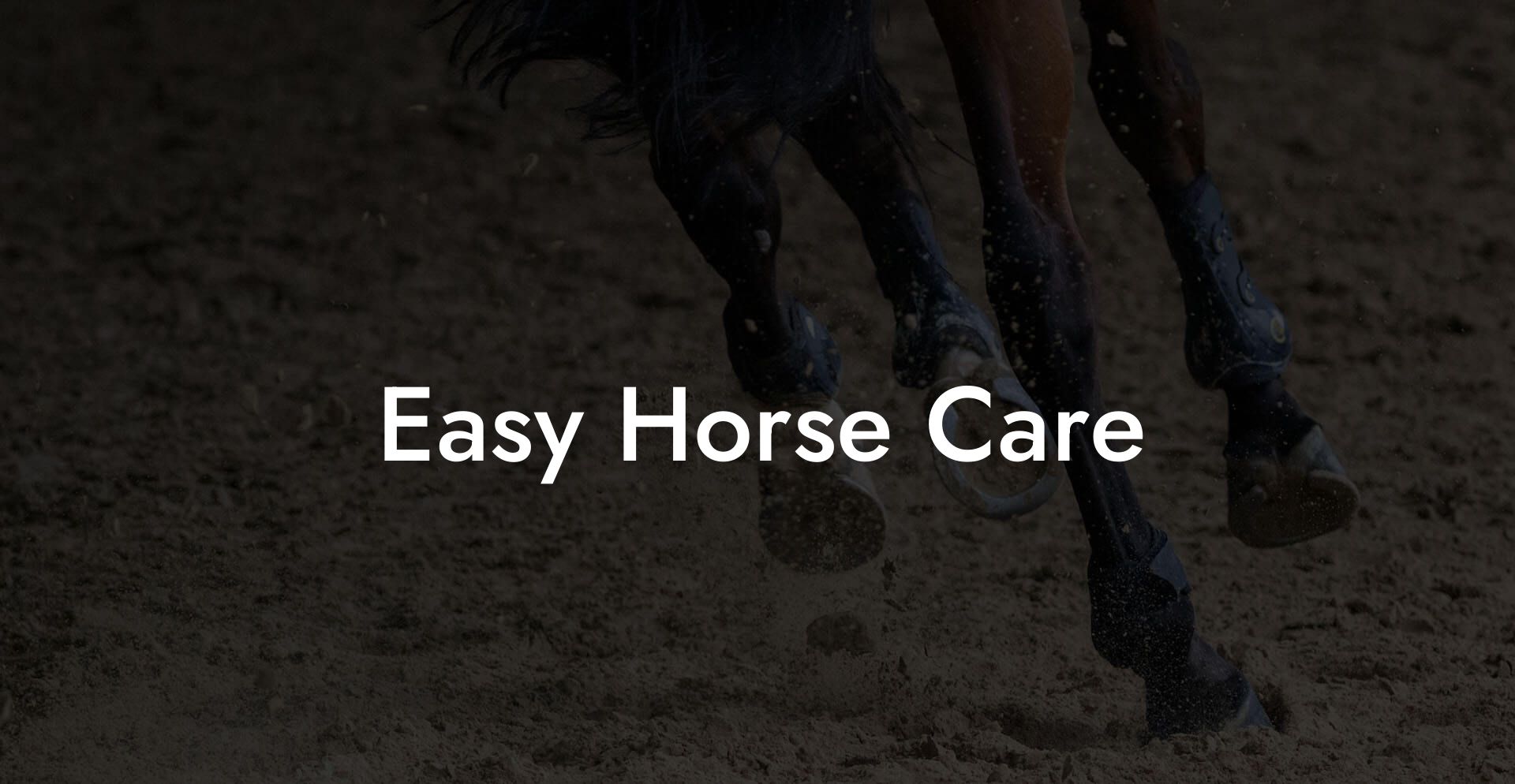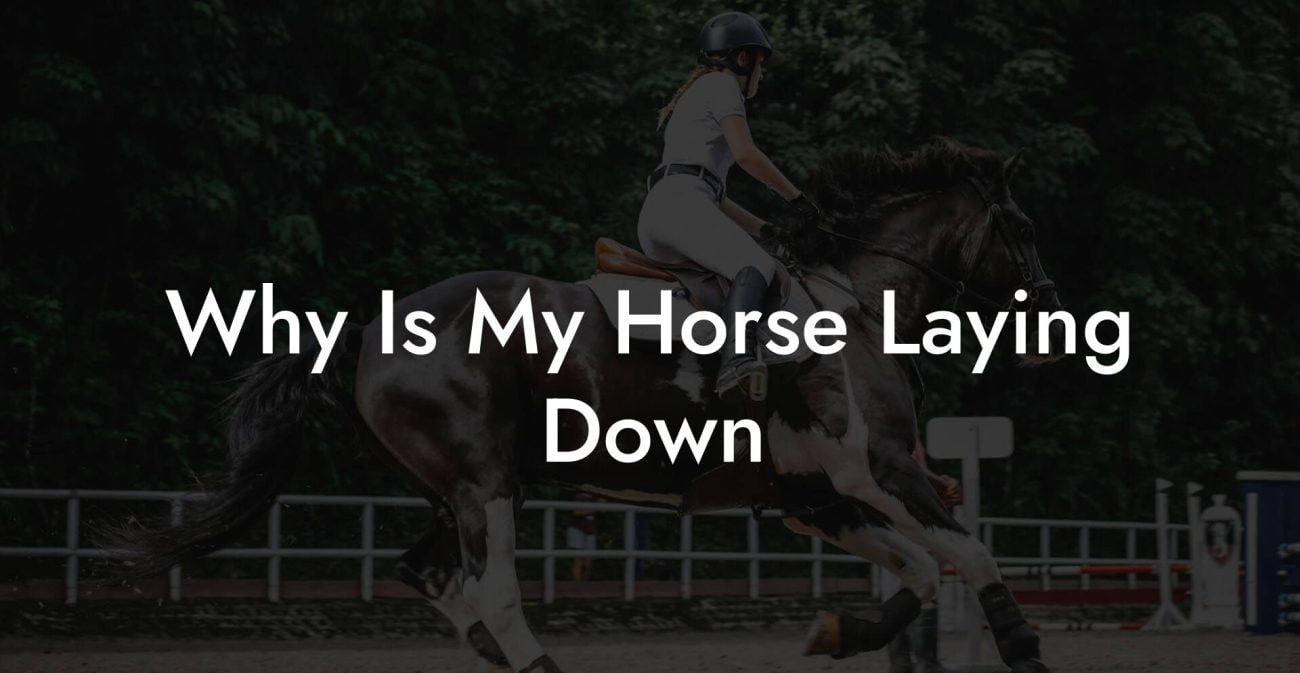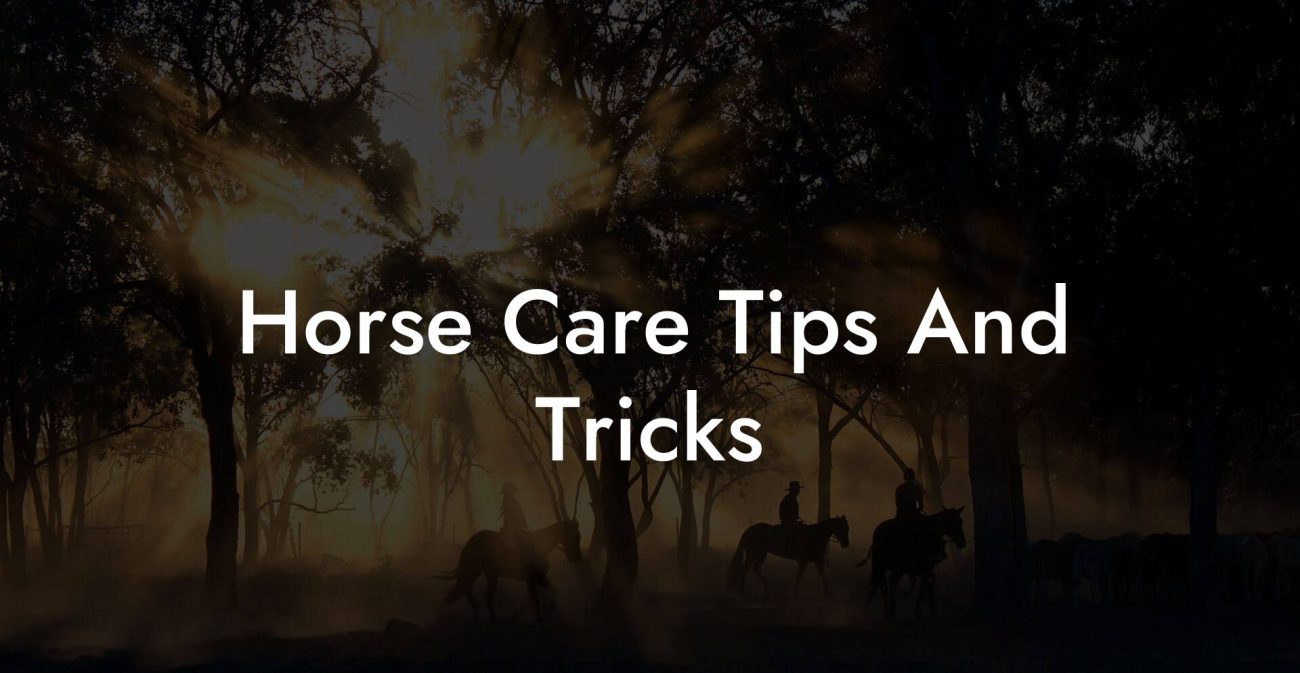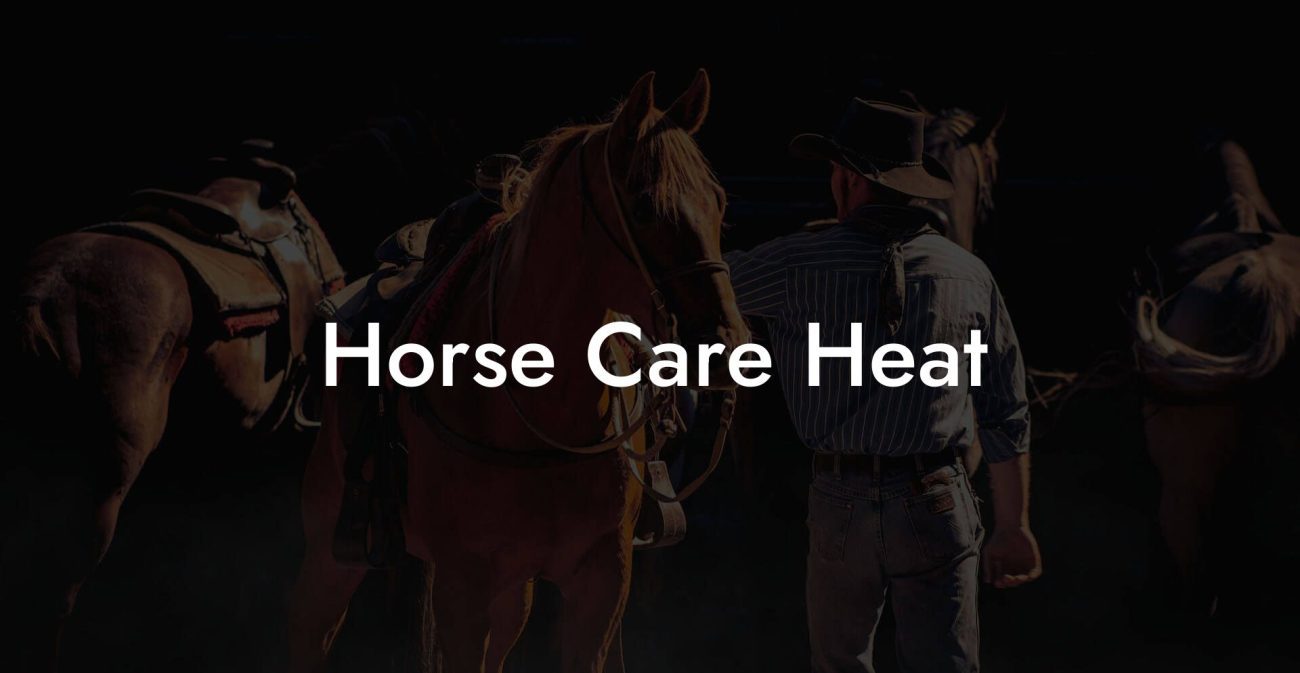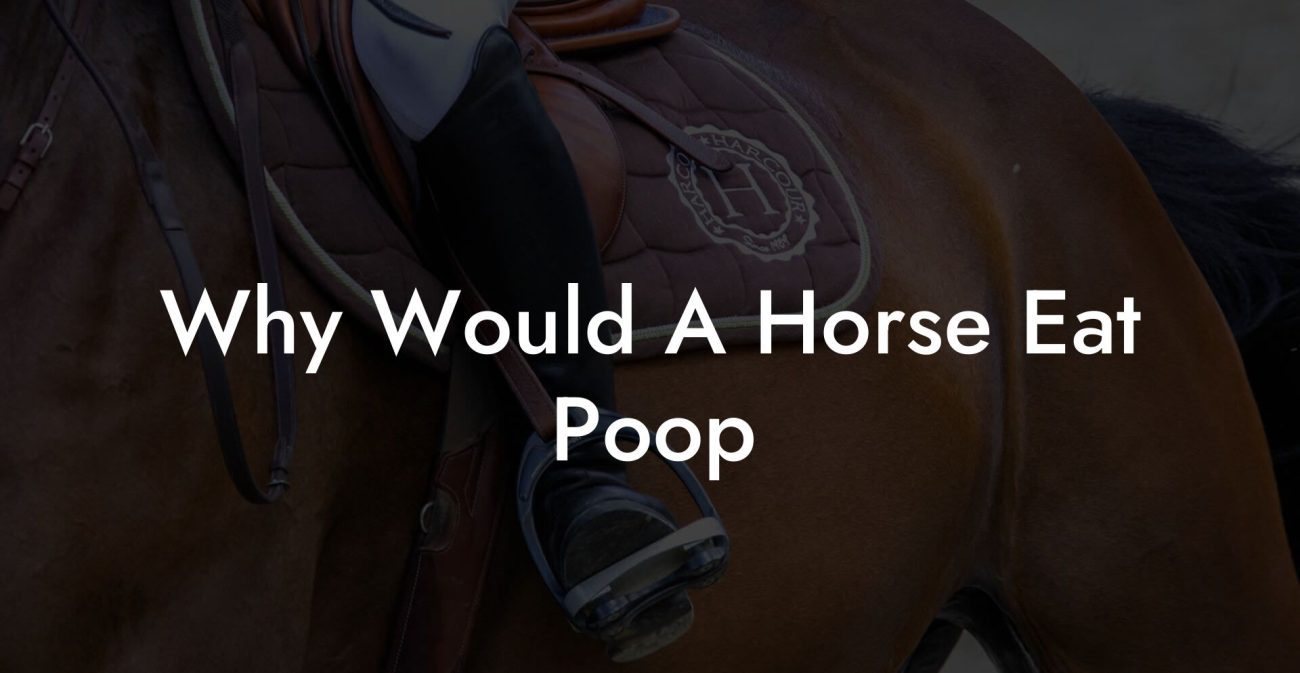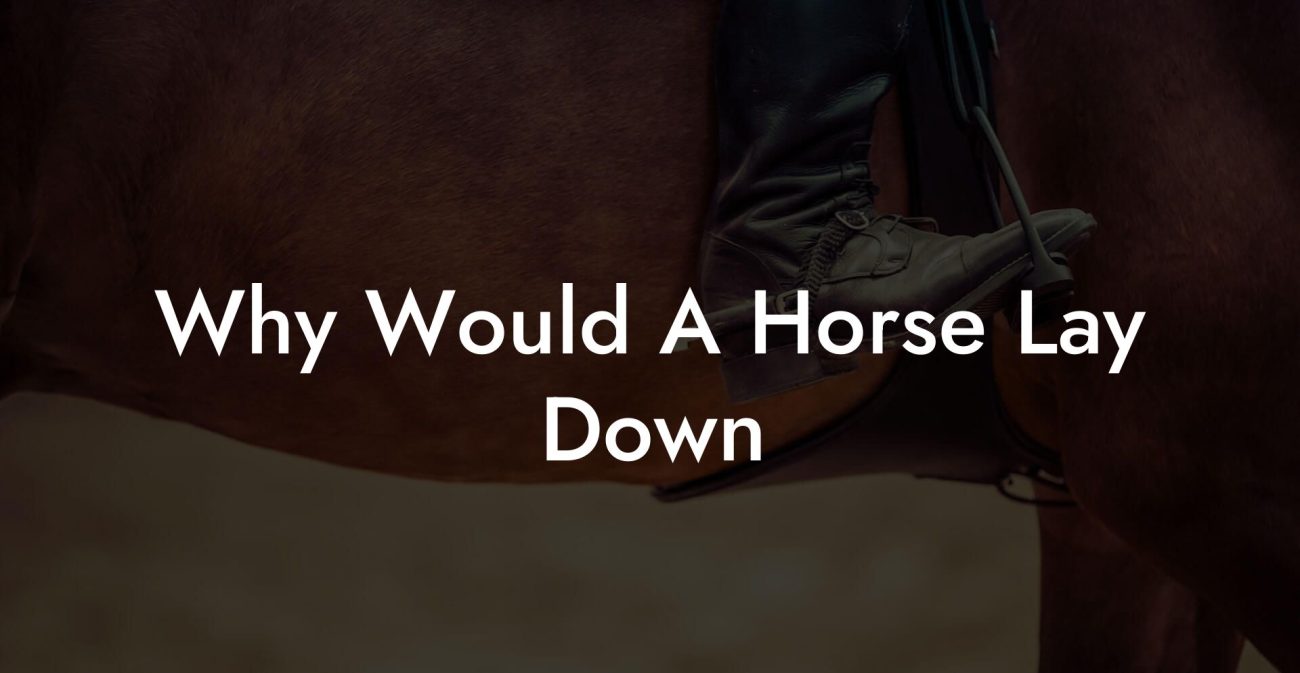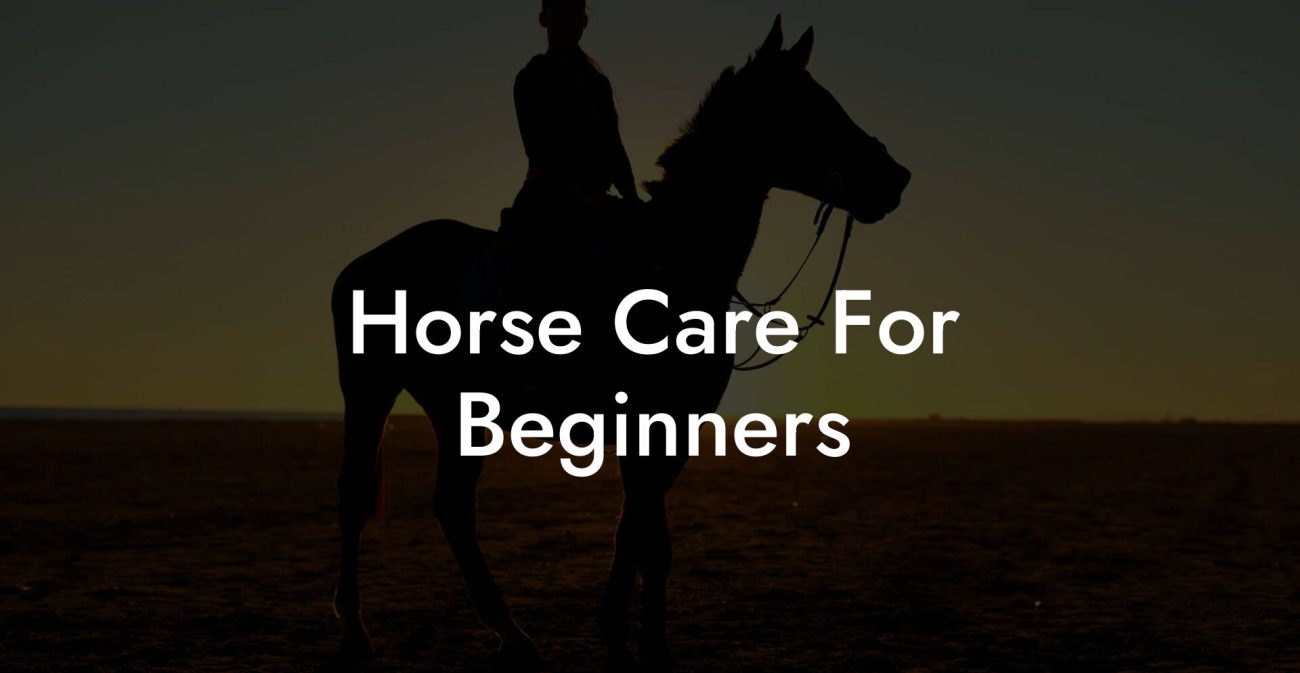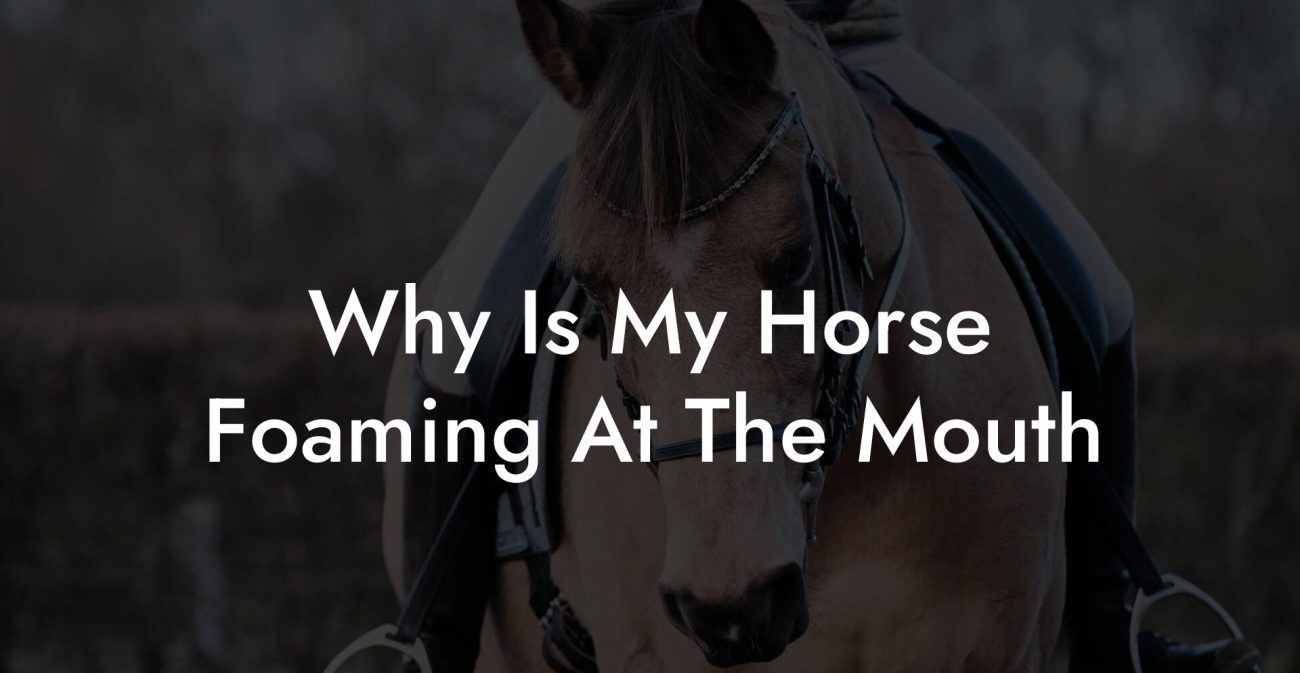Ever looked into a horse’s soulful eyes and wondered how you could be the ultimate game-changer in its life? Whether you're a seasoned equine enthusiast or a curious newbie ready to dive headfirst into the world of horse care, this guide is your go-to playbook for transforming your connection with these majestic creatures. We’re talking about practical, down-to-earth strategies infused with a generous dose of wit and heart, a guide tailored for Gen-Z and millennial horse lovers who aren’t afraid to get hands-on, get creative, and maybe even get a little dirty in the process!
Quick Links to Useful Sections
- How Do I Begin? Understanding Your Equine Companion
- The Essentials of Equine Care: nutrition, Grooming, and Exercise
- Equine Nutrition: Fueling the Freedom
- Grooming: More Than Just a Spa Day
- Exercise and Enrichment: Moving and Grooving
- Creating a Safe Haven: The Ultimate Environment for Horses
- Stable Management: Your Horse’s Castle
- Pasture and Paddock Considerations
- Holistic & Integrative Equine Therapy: Healing the Heart and Hoof
- Acupuncture and Equine Bodywork
- Mind-Body Connection: The Role of Stress Reduction
- Nutrition Meets Alternative Medicine
- How to Help Injured or Sick Horses: A Roadmap to Recovery
- Immediate First Aid and Assessment
- Rehabilitation and Recovery Programs
- Emotional Healing: The Overlooked Component
- Innovative Technologies and Modern Approaches in Equine Care
- Wearable Technology and Health Monitoring
- Digital Horse Management Systems
- Telemedicine and Virtual Consultations
- The Future of Equine Care
- Building Community: Volunteer Networks and Equine Advocacy
- Volunteering With Equine Rescue Organizations
- Advocacy and Social Media: Amplify Your Impact
- Community Support: Learning and Growing Together
- Resources and Community Support: Your Next Steps in Equine Empowerment
- FAQs: How Can I Help Horses?
- Your Journey to Becoming a Pro-Equine Hero
How Do I Begin? Understanding Your Equine Companion
Horses are not just large, four-legged animals; they’re soulful beings with complex emotions, stunning intelligence, and a charisma that has inspired legends for millennia. Before diving into the nuts and bolts of care, it’s essential to understand the unique personality and spirit of the horse. Think of it as getting to know a friend who speaks a different language, a language of whinnies, tail flicks, and soulful gazes.
At its core, horse care is about establishing a connection built on trust, empathy, and respect. Whether you’re caring for a spirited stallion, a gentle mare, or a playful gelding, acknowledging their individuality and inherent needs is the first step in making a real difference in their life. This approach is not just about routine feeding or grooming; it’s about forging a relationship that makes both you and your equine pal feel understood, appreciated, and ready for adventure.
From learning the basics of horse psychology to understanding their natural habits, the journey begins with observation, respect, and a willingness to learn. So, grab your metaphorical hay bale and get ready to explore the fascinating world of equine behavior.
The Essentials of Equine Care: nutrition, Grooming, and Exercise
When it comes to horse care, the fundamentals are as enduring as a trusty saddle: nutrition, grooming, and exercise are cornerstones that ensure your equine friend lives its best life.
Equine Nutrition: Fueling the Freedom
Just like us, horses require a balanced diet to thrive. A healthy meal plan for a horse typically includes high-quality forage, grains in moderation, and essential vitamins. The right mix depends on the horse’s age, activity level, and overall health.
Here are some key nutritional tips:
- Forage First: Make hay or pasture grass the primary source of nutrition, mirroring a horse’s natural diet.
- Balanced Grains: Grain mixes and concentrates can provide extra energy, especially for young or active horses, but keep it moderate to avoid digestive upsets.
- Hydration: Fresh, clean water is essential. Think of it as premium fuel that keeps all those impressive muscle fibers firing.
- Supplements: Depending on your horse’s needs, supplements such as vitamins, minerals, or joint support formulas might be necessary. Always consult with your veterinarian before adding supplements to the diet.
Eating for a horse is akin to curating the perfect Spotify playlist, get the right mix, and every day is a hit.
Grooming: More Than Just a Spa Day
Grooming is where care meets connection. Regular grooming does more than just keep the coat shining, it’s an opportunity for bonding, health checks, and even a bit of horsey fashion. When you dedicate time to brushing, hoof cleaning, and mane detangling, you’re not only preventing skin issues and infections but also sending a powerful message: "I care about you!"
Key grooming practices include:
- Brushing: Regular brushing helps remove dirt, stimulates blood circulation, and keeps the coat looking fabulous.
- Hoof Care: Clean and inspect hooves daily to detect problems like thrush or cracks. A healthy hoof is the foundation of every great ride!
- Mane and Tail Maintenance: Prevent tangles and mats by gently combing and conditioning these areas, bonus points for stylish braids if you’re feeling artsy!
- Skin and Ear Checks: Look out for signs of irritation, insect bites, or infections to nip potential issues in the bud.
In a nutshell, grooming is your chance to engage in a tranquil ritual that benefits both the horse’s hygiene and your bond.
Exercise and Enrichment: Moving and Grooving
Just as we need a good workout to stay healthy, horses thrive on exercise and mental stimulation. A well-exercised horse is a happy, healthy, and well-balanced companion.
Consider these exercise ideas:
- Daily Rides or Lunging: Regular rides or lunging sessions are great for cardiovascular health, muscle tone, and mental alertness.
- Groundwork and Liberty training: Engage in non-riding exercises that foster trust, obedience, and communication without the saddle.
- Obstacle Courses: Set up creative, safe obstacles in the pasture to challenge your horse’s agility and intelligence. Think of it as an equine version of an escape room challenge.
- Enrichment Activities: Introduce toys, varied terrains, or even puzzle feeders to stimulate your horse’s mind and keep boredom at bay.
Whether it’s a gentle trot down a quiet trail or a vigorous session of jumping drills, keeping your horse active is key to maintaining physical and emotional health.
Creating a Safe Haven: The Ultimate Environment for Horses
A happy horse needs a happy home. Building or maintaining a secure and stimulating environment is essential to fostering your horse’s well-being. This means thinking beyond the basic stable and considering how every element, from the layout of the paddock to the design of the barn, affects your horse’s daily life.
Stable Management: Your Horse’s Castle
Your stable is not just a shelter, it’s a sanctuary where your horse feels safe and nurtured.
- Ventilation and Lighting: Ensure proper airflow and natural lighting. Fresh air and sunlight can work wonders for your horse’s mood and health.
- Cleanliness: A clean stable means fewer bugs, less stress, and a lower risk of respiratory issues. Regular mucking out and disinfecting are critical.
- Space and Comfort: Provide ample room for each horse. Overcrowding can lead to stress and behavioral issues, so think of your barn as a luxury boutique rather than a cramped dormitory.
Pasture and Paddock Considerations
The pasture isn’t just for grazing, it’s an arena for play, exploration, and socialization. A well-designed paddock encourages natural movements and stimulates social interaction among horses.
- Size and Fencing: A spacious paddock with secure, well-maintained fencing is critical for safety and exercise. Check regularly for any weak spots that need fixing.
- Natural Elements: Introduce variety with hilly terrain, trees for shade, and natural water sources. These elements not only enhance physical fitness but also mirror the horse’s natural habitat.
- Enrichment Zones: Dedicate areas for grazing, relaxation, and playful exploration. Think of it as designing theme parks for horses, a bit of variety goes a long way!
These elements help create an environment where your horse not only survives but thrives, both physically and emotionally.
Holistic & Integrative Equine Therapy: Healing the Heart and Hoof
The journey to optimal horse care doesn’t stop at nutrition and exercise. Holistic and integrative therapies are increasingly popular as they address the horse’s overall well-being. These practices merge conventional veterinary care with alternative approaches that nurture the body, mind, and even the spirit.
Acupuncture and Equine Bodywork
Acupuncture for horses is gaining traction among trainers and veterinarians alike. This therapy involves stimulating specific points on the body to improve blood flow, relieve pain, and enhance overall function. Much like its human counterpart, equine acupuncture is all about rebalancing the body’s energy, a practice that resonates with both modern science and ancient wisdom.
Equine bodywork, including massage, chiropractic adjustments, and myofascial release, can ease muscle tension, reduce inflammation, and help the horse recover from injuries. These treatments offer a more personalized approach by focusing on each horse’s unique physical and emotional state.
Mind-Body Connection: The Role of Stress Reduction
Horses are remarkably sensitive to the human energy around them. Stress, whether caused by environmental factors, illness, or human miscommunication, can have a profound impact on a horse’s health. Integrative practices such as mindfulness training for handlers, calming music during stabling, and structured routines reduce stress not only in horses but in the entire stable environment.
By focusing on stress reduction, you help create a calm environment that supports healing, improves performance, and cultivates a genuine, trusting bond between you and your horse.
Nutrition Meets Alternative Medicine
In the realm of holistic care, nutrition is one of the most powerful medicines. Beyond the basic diet, many horse owners are embracing supplements like herbal infusions, omega-3 fatty acids, and antioxidants that support joint health and reduce inflammation.
Some integrative practitioners also advocate for mindful feeding practices, which focus on the horse’s mental state during meals, after all, stress can affect digestion too!
How to Help Injured or Sick Horses: A Roadmap to Recovery
At some point, every horse owner might face the heart-wrenching task of caring for an injured or ill equine friend. The key is to approach recovery with compassion, patience, and a holistic mindset.
Immediate First Aid and Assessment
When a horse is injured, the first priority is always to ensure its safety and stabilize its condition. Knowing basic equine first aid can be a lifesaver. Here’s what you should do:
- Assess the Situation: Determine if the injury is minor or potentially serious. Look for signs of swelling, lameness, or abnormal behavior.
- Contact Your Vet: For any suspected major injury or illness, professional veterinary advice is crucial. Quick assessment can mean the difference between a swift recovery and long-term complications.
- Basic Interventions: For minor injuries, simple measures like cold packs, gentle bandaging, or anti-inflammatory medications (as recommended by a vet) can be effective first steps.
Rehabilitation and Recovery Programs
Recovery from injury is as much about patience and consistent rehabilitation as it is about advanced treatments. Consider integrating these practices into the recovery plan:
- Structured Rehab Exercises: Gradually reintroduce controlled exercise routines to restore muscle strength without risking re-injury.
- Hydrotherapy: Water can be a magical healing element, think of it as a natural resistance training tool that reduces strain on joints while building muscle strength.
- Therapeutic Massage: Specialized massage techniques can reduce scar tissue formation, increase local circulation, and speed up the healing process.
- Supportive equipment: In some cases, supportive devices like bandages or specialized boots can help stabilize and protect an injured limb.
Remember, every recovery is unique. Work closely with your vet and, when available, an equine rehabilitation specialist to develop a plan that’s as individual as your horse.
Emotional Healing: The Overlooked Component
Horses, like people, can experience emotional distress when injured. They may become withdrawn, anxious, or even depressed. Incorporate gentle handling, extra grooming, and increased social time with other horses to rebuild their confidence and emotional well-being.
A supportive, calm environment can accelerate healing by reducing stress hormones and encouraging a positive, resilient mindset.
Innovative Technologies and Modern Approaches in Equine Care
We live in the age of tech, even in the stables! Modern equine care now leverages innovative technologies that make maintaining and monitoring horse health more efficient and effective. From high-tech diagnostics to cutting-edge wearables, here’s how technology is revolutionizing the world of horse care:
Wearable Technology and Health Monitoring
Imagine a Fitbit for your horse. Wearable devices can now track activities, heart rate, and even sleep patterns, providing real-time data that can be crucial in identifying early signs of distress or illness. With these insights, you can proactively address issues before they become major problems.
Some wearables are even equipped with GPS trackers, ensuring you’re always aware of your horse’s location in expansive pastures, a thoughtful addition for owners with equine rescue centers or extensive riding arenas.
Digital Horse Management Systems
Gone are the days of endless paperwork and manual logbooks. Modern digital management systems let you track everything from health records and feeding schedules to exercise routines and medical history. These systems streamline communication with vets, trainers, and caretakers, ensuring that everyone involved in your horse’s care is on the same page.
With a few clicks on your phone, you can access a wealth of data that helps you make informed decisions for your horse’s overall well-being.
Telemedicine and Virtual Consultations
The digital revolution has made it easier than ever to connect with top equine experts from anywhere in the world. Telemedicine platforms enable virtual consultations, ensuring that your horse can get expert advice, even when in-person visits are not feasible. This integration of technology not only saves time but also enhances the quality of care.
As equine care evolves, staying abreast of new technologies and approaches can help you provide state-of-the-art care for your four-legged friend.
The Future of Equine Care
From the integration of artificial intelligence in diagnostics to advancements in regenerative medicine, the future of horse care is a dynamic blend of science and compassion. Embracing these innovations doesn’t mean you lose the personal touch, instead, it enhances your ability to understand and cater to your horse’s unique needs.
Building Community: Volunteer Networks and Equine Advocacy
What’s better than caring for your horse? Caring for horses at large and being part of a vibrant, passionate community that supports equine welfare. Being active in local volunteering, horse rescue organizations, or online communities can significantly impact both your life and the lives of countless horses.
Volunteering With Equine Rescue Organizations
Many horses find themselves in challenging situations due to neglect, abandonment, or injury. Volunteering with equine rescue organizations gives you a chance to lend your time, skills, and passion to transforming their lives. Tasks might include helping with stable maintenance, assisting with rehabilitation programs, or even simply providing much-needed companionship.
Not only is volunteering incredibly rewarding, it also deepens your understanding of animal welfare and builds connections with like-minded individuals who share your love for horses.
Advocacy and Social Media: Amplify Your Impact
In today’s digital age, social media is a powerful tool for advocacy. Sharing rescue stories, educational content, and personal horse care tips can inspire others and raise awareness about equine welfare issues. Whether you’re tweeting, posting on Instagram, or creating your own blog, your voice can spark change and rally support for horse care causes.
Leverage hashtags like #EquineCare, #HorseRescue, and #HorseWellness to join global conversations while showcasing your unique approach to horse care.
Community Support: Learning and Growing Together
Community support is a cornerstone of effective horse care. Joining clubs, online forums, or local meet-ups dedicated to equine therapy and stable management can provide you with invaluable insights and practical advice. This network not only serves as a sounding board when facing challenging decisions but also as an endless fountain of inspiration and camaraderie.
Resources and Community Support: Your Next Steps in Equine Empowerment
Ready to level up your horse care game? There’s a plethora of resources waiting to be explored, books, online courses, social media groups, and local workshops can all help you deepen your knowledge and enrich your practice.
Start by connecting with your local equine center or rescue organization. Don’t hesitate to ask questions, volunteer, and invest in courses from reputable institutions to sharpen your skills in equine nutrition, stable management, and even alternative therapies.
Head over to online communities like equine forums, Facebook groups dedicated to horse health, or even YouTube channels run by trusted equine experts where you can glean insights and exchange tips with fellow horse lovers. These networks are not only rich in expertise but provide inspiration and motivation every step of the way.
And remember, every small step counts. Whether you’re refining your grooming technique, exploring a new dietary supplement, or trying out a piece of high-tech equipment, you’re contributing to the brighter future of equine care.
FAQs: How Can I Help Horses?
Your burning questions about equine care and making a lasting impact on horse well-being have answers. Check out these frequently asked questions, specially compiled to help you navigate the journey of caring for horses.
1. What are the fundamental needs of a horse?
Horses need a balanced diet rich in quality forage, proper hydration, consistent exercise, regular grooming, and a safe, stimulating environment. Along with these, attention to emotional health and social interactions is key.
2. How do I create a connection with my horse?
Building a connection involves patient observation, respectful handling, consistent care routines, and spending quality time through grooming, exercise, and training. Every interaction is an opportunity to build trust.
3. How can modern technology improve horse care?
Wearable devices, digital management systems, and telemedicine are revolutionizing equine care. They provide real-time monitoring of your horse’s health, streamline record keeping, and connect you with experts for timely advice.
4. Are there holistic therapies available for horses?
Yes, holistic therapies such as acupuncture, massage, and equine bodywork complement traditional veterinary care by promoting overall well-being, reducing stress, and assisting in recovery from injuries.
5. What steps should I take if my horse is injured?
Always start with a thorough assessment and contact your vet urgently. Following professional advice, provide first aid, and consider rehabilitation programs like hydrotherapy and structured exercise routines to aid recovery.
6. How can I get involved with equine rescue or community work?
Look for local equine rescue centers or volunteer networks focused on horse welfare. Engage in online forums and social media groups that share tips on rescue operations, enrichment activities, and stable management.
7. Can nutritional supplements really boost my horse’s health?
Yes, when used correctly and under veterinary guidance, supplements such as omega-3 fatty acids, joint support formulas, and vitamins can enhance recovery, reduce inflammation, and support overall health.
8. What should I consider when setting up a stable or pasture?
Prioritize safety, cleanliness, and space. Ensure proper ventilation in stables, ample room for movement in pastures, and secure fencing. Introducing enrichment zones and natural elements can also significantly benefit your horse.
9. How do I integrate modern tech with traditional horse care?
Combining traditional care routines with technology, like wearable health monitors, digital logs for tracking nutrition and exercise, and virtual vet consultations, creates a comprehensive approach that ensures optimal care.
10. What resources are available for advanced equine care training?
Look for accredited courses in equine nutrition, stable management, and alternative therapies. Online platforms, workshops, webinars, and local equine centers are excellent places to start.
Your Journey to Becoming a Pro-Equine Hero
Embarking on the quest of equine care is a thrilling blend of passion, knowledge, and practical creativity. Every stride you take, from perfecting grooming techniques to mastering holistic therapies, creates a ripple effect that enriches not only your horse’s life but also your own world.
Think of this journey as both an art and a science. It’s about learning, experimenting, and above all, embracing the challenges and joys that come with every neigh, every gallop, and every quiet moment spent in the stable. Your commitment to these magnificent creatures shines through every aspect of care, driving a future where horses live healthier, happier lives.
Whether you’re busy refining your digital stable management skills, volunteering with your favorite horse rescue, or simply spending extra time connecting with your equine companion, know that you’re making a significant impact. Keep exploring, keep learning, and keep that passion fired up. Every new insight and every small improvement is a step forward in the transformative journey of horse care.
So, harness your enthusiasm, equip yourself with the best practices, and get ready to innovate in the field of equine care. With your heart and hands dedicated to these wonderful creatures, you're not just a horse owner, you’re a true pro-equine hero ready to lead the charge in the future of compassionate, tech-savvy, and integrative horse care.

